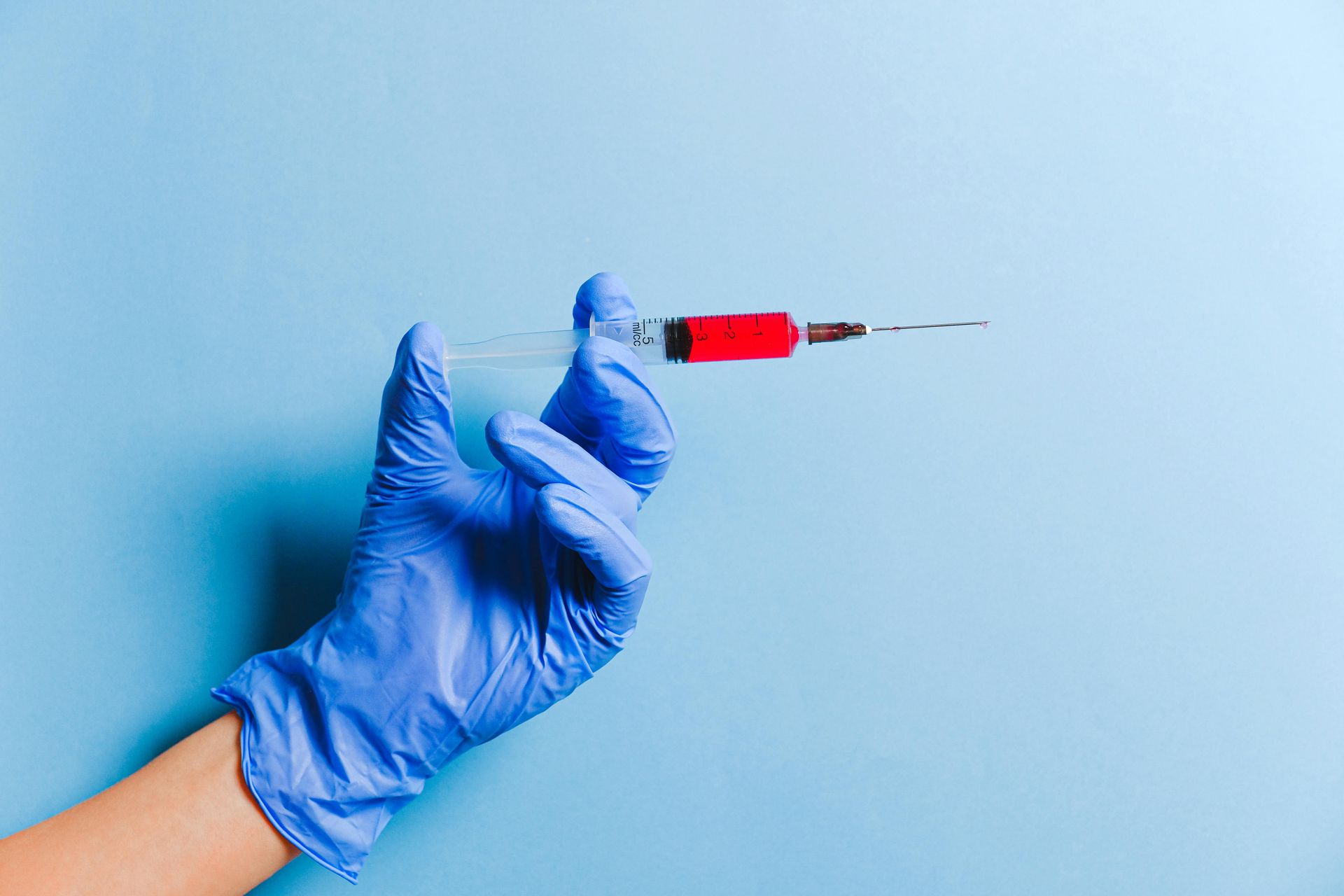
What are Herbal Supplements?

Herbal supplements are dietary supplements obtained from medicinal plants and used to prevent and treat illnesses.
Herbs and supplements are traditional medicine taken into the body as food. Herbs are plant-based, while supplements can contain a variety of dietary ingredients. They are consumed to enhance health and well-being and are available in various forms.
Plant-based medicine, commonly known as "Herbs," can be consumed as fresh or dried, as a tea or infusion, or as an ingredient in food or nutritional supplement. Supplements are available in various forms, including tablets, capsules, soft gels, powders, liquids, and gummies.
Various medications, both prescription and over-the-counter, are derived from plant sources. However, these medications are composed of refined and purified components and are subject to regulation by the FDA. In contrast, herbal supplements may comprise whole plants or plants fragmented and are not regulated by the FDA.
What are some of the most common herbal supplements?
Many herbal supplements are available in various forms, such as liquids, gummies, and powders. Below is a list of the most sought-after herbal supplements.
• Garlic
• Turmeric
• Ginseng
Benefits of Taking Herbs and Supplements
People have used herbs and other natural resources to treat illnesses and feel better for thousands of years. It turns out that herbal medicines really do work, which means the ancient folks who used them might have known what they were doing! Here are some of the benefits of taking herbal supplements:
1. Herbal Supplements may Strengthen the Immune System:
Herbal supplements can help strengthen the immune system by protecting the body against infection.
If you're looking for a natural way to support your immune system, consider adding herbs to your diet. Some herbs, such as echinacea and garlic, have been shown to enhance the immune system and help reduce the risk of illness. Incorporating these herbs into your routine may give your body an extra line of defense against harmful germs and bacteria.
2. Herbal Supplements may Aid digestion:
Some Herbal supplements have been used for centuries to support gut health and improve digestion and may offer some relief if you're experiencing digestive problems. Traditional approaches to wellness and natural remedies for a healthier gut have become increasingly popular in recent years, whether through herbs or other natural supplements.
3. Herbal Supplements may Improve Mental Health:
Common examples of herbs that improve mental health include
- St. John's Wort can reduce the symptoms of anxiety and depression by raising serotonin levels in the brain.
- Ginseng can enhance focus, lessen fatigue, and lift mood.
- Valerian root is a natural sedative that can help with insomnia and anxiety by raising GABA levels in the brain.
- Ashwagandha can also increase GABA levels in the brain and reduce the symptoms of anxiety and depression.
4. Herbal Supplements may Help Regulate Blood Sugar:
Herbs such as Aloe Vera, Cinnamon, Milk Thistle, Ginger, and Fenugreek may be alternative therapies for Type 2 diabetes.
Always talk to your doctor before taking herbs or supplements to control your blood sugar, and always talk you your doctor before discontinuing your prescribed diabetes treatments.
5. Herbal Supplements may Reduce Inflammation:
Some herbs and spices contain anti-inflammatory chemicals, which may help your general well-being by reducing inflammation. Anti-inflammatory herbs may include:
- garlic
- ginger
- turmeric
- black pepper
- cinnamon
Potential Risks and Side Effects
While herbs and supplements have many benefits, it is crucial to be aware of their potential risks and side effects. Here are some possible negative effects of using herbs and supplements:
• Allergic reactions: Some people may be allergic to certain herbs or supplements, which can cause symptoms like rashes, hives, or difficulty breathing.
• Toxicity: Herbs and supplements may be toxic if taken in large amounts for an extended period of time.
• Hormonal Imbalances: Some herbs and supplements can affect the hormone levels in the body, which can lead to side effects like acne, mood swings, or changes in menstrual cycles.
• Digestive issues: Some herbs and supplements may cause digestive problems like nausea, diarrhea, or constipation.
It's important to remember that the risks and side effects of herbs and supplements can vary depending on the individual, the herb or supplement in question, and the dosage and duration of use.
Herbs and supplements can also interfere with any prescription medications you are taking. They can decrease their efficacy, or the combination of the two may be harmful.
Always consult a healthcare provider before starting a new herb or supplement to discuss potential risks and side effects and ensure it is safe and appropriate for use.
Safe use of Herbs and Supplements
Safety guidelines for taking herbs and supplements include the following:
• Consult a healthcare provider: Before taking any herbs or supplements, it is essential to talk to your healthcare provider, especially if you are taking any medications, have a medical condition, or are pregnant or breastfeeding.
• Research the product: Do some research to ensure that the herbs or supplements you are considering are safe and effective. Look for reputable sources of information, such as government health agencies, medical institutions, and professional associations.
• Read the label: Always read the label carefully before taking any herbs or supplements. Check the dosage recommendations, ingredients, and any warnings or precautions.
• Start with a low dose: Start with a low dose of herbs or supplements and gradually increase the dosage as needed. This helps minimize the risks of side effects.
• Avoid taking too much: Too many or high doses of herbs or supplements can be harmful. Instead, follow the recommended dosage guidelines and do not exceed the recommended dosage.
• Report any adverse reactions: If you experience any adverse reactions or side effects from taking herbs or supplements, stop taking them immediately and contact your doctor.
SOURCES/CITATIONS
https://www.hopkinsmedicine.org/health/wellness-and-prevention/herbal-medicine
https://www.webmd.com/vitamins-and-supplements/ss/slideshow-herbs-supplements-avoid
https://www.ncbi.nlm.nih.gov/books/NBK536964/
Dietary Supplements: What You Need to Know - Consumer (nih.gov)
12 Benefits of Ginkgo Biloba (Plus Side Effects & Dosage) (healthline.com)
Ginseng: Health benefits, facts, and research (medicalnewstoday.com)
SAW PALMETTO: Overview, Uses, Side Effects, Precautions, Interactions, Dosing and Reviews (webmd.com) Echinacea | NCCIH (nih.gov)
9 Most Powerful Medicinal Plants and Herbs, Backed by Science (healthline.com)
St. John's Wort and Depression: In Depth | NCCIH (nih.gov)
8 Ways Ginseng Works for Memory and Brain Health | Be Brain Fit
Valerian: How Does It Help You Relax and Get Better Sleep? (healthline.com)
Diagnosis and Classification of Diabetes Mellitus - PMC (nih.gov)
Type 2 diabetes: Using herbs and supplements (medicalnewstoday.com)
What to Know Before You Take Herbal Supplements (webmd.com)
Thank you for reading Patient Education Essentials, the Write Shift RN blog.
Disclaimer: This article was written as a guest post for Write Shift RN LLC's blog. The information in it may not be wholly fact-checked or edited, allowing the reader to see the writer's work and skills firsthand. This information is not intended as medical advice. It is for informational and educational purposes only. Always talk to your doctor or other qualified healthcare providers about any questions or concerns you may have regarding medical conditions.










